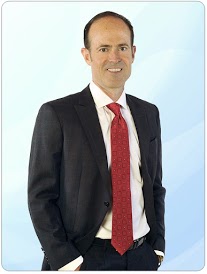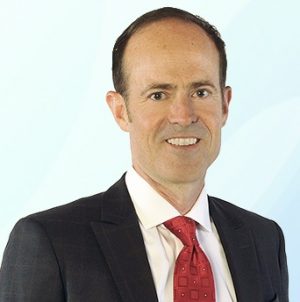Should You Choose a Younger Doctor or Older Doctor?
Selecting a new doctor requires careful consideration. The age of the physician often emerges as a factor. While age should not be the sole determinant, understanding its influence on the doctor-patient relationship and quality of care is valuable. This article explores the ideal age for your next doctor, considering advantages and limitations.
Does Age Matter?
It’s possible that age does, in fact, matter when it comes to patient outcomes – though it’s just one of many factors you should consider in choosing a new doctor. .
A 2017 study conducted in the U.K. analyzed a cohort of elderly U.S. patients on Medicare who had serious illnesses, necessitating hospital admission and receiving care from hospitalists.
After adjusting for location, patient age and other factors the researchers found that mortality rates were higher for older physicians than for younger ones at the same hospitals.
Specifically, the researchers found that elderly patients of physicians who were younger than 40 years old had adjusted 30-day mortality rates of 10.8%.
Patients of physicians aged 40 through 49 had adjusted 30-day mortality rates of 11.1%.
Patients of physicians aged 60 and older had an adjusted 30-day mortality rate of 12.1%.
So higher mortality among elderly and sick patients does appear to be correlated with the age of the physician.
However, the study also found that the difference went away for older doctors with higher patient loads. Busy doctors don’t seem to lose their edge over time. But semi-retired doctors may not be able to keep up their skill sets as they get older.
An older survey published in The Annals of Internal Medicine also found that younger doctors tend to deliver a higher quality of care, on average, compared to older doctors.
Of 62 studies that measured physician knowledge, outcomes, or care quality and that also quantified physician age or number of years in practice, more than half showed evidence that physician care quality and patient outcomes deteriorate with age. Only one study showed improved performance over time for all outcomes measured.
Another study found that even after adjusting for a patient’s probability of death, hospital location and practice environment, physician specialty, board certification, and the volume of patients seen, mortality rates increased by 0.5% for every year since the attending physician had graduated from medical school.
Advantages of Experience
That’s not to knock the advantages of experience.
Older doctors often have knowledge, skills, and insights crucial for diagnosing and treating complex conditions. Their wisdom instills confidence and trust in patients. Experienced doctors can navigate challenging cases, especially for patients with chronic illnesses or complex medical histories.
More experienced doctors may have better people skills. This means they may be more effective at patient counseling and identifying underlying mental health issues in addition to the immediately presenting physical ailment.
But younger physicians have important advantages, too:
- More familiarity with latest research, diagnostic tools, and treatments.
- Recent exposure to cutting-edge techniques and practices – especially those doctors who trained in the top medical schools and did their internships and residencies at the top hospitals.
- More likely to use advanced technologies for communication, record-keeping, and accessing medical information.
- More likely to offer telemedicine services.
- More likely to adhere to standard of care guidelines and procedures.
Overall, studies show that despite the advantages of older doctors’ long years of clinical experience, younger doctors’ greater understanding of new technologies gives them a definite edge when it comes to patient outcomes.
This is not to say that you shouldn’t see an older doctor. Age is just one of many factors that affect patient outcomes and quality of care. And in the grand scheme of things, it may be a minor factor, depending on your medical situation.
Patient-Doctor Connection and Relatability
The doctor-patient relationship relies on trust, communication, and empathy.
Some patients prefer doctors closer to their age, believing it enhances understanding. Shared experiences and generational similarities facilitate open communication. This relatability leads to better patient engagement and satisfaction.
Patients seeking doctors of different age groups value fresh perspectives, diversity of ideas, and alternative approaches to healthcare. This fosters innovative thinking and challenges assumptions. The patient-doctor connection depends on individual preferences and the physician’s ability to establish rapport, regardless of age.
Furthermore, if your interactions with your doctor are routine and focus mainly on primary care visits that don’t involve a lot of cutting edge technology, this would tend to neutralize the younger doctors’ advantage, while playing to the strengths of the older physician.
Studies also show that choosing an independent doctor rather than one who works for a large health care system, has a number of advantages, too. These advantages may outweigh age as a factor when choosing a new doctor.
Direct Primary Care
Choosing a direct primary care doctor can help you combine some of the advantages of both worlds.
Direct primary care (DPC) is an increasingly popular care model in which patients bypass traditional insurance, and instead contract directly with a primary care physician’s practice. It’s a subscription-based model: You pay a flat, affordable monthly fee, and in return you get unlimited visits with your primary care doctor.
DPC practices have much lower overhead than conventional doctors’ offices, and much more manageable patient loads. As a result, DPC doctors can spend much more time working directly with each patient.
With more time for each patient, younger doctors have more time to connect with patients and get to the root of any medical problems. This neutralizes some of the advantages of more experienced doctors when it comes to patient interviews and diagnostics.
Direct primary care plans are often combined with a healthsharing plan such as DPC DIRECT, rather than a traditional health insurance plan. Health sharing plans tend to cost just a fraction of what unsubsidized traditional health insurance plans charge without a subsidy.
Getting a Second Opinion
Physicians’ ages may be a factor in getting a second opinion.
Younger doctors have decided advantages in technology and advanced techniques, while older doctors have more experience and clinical judgment.
If your older doctor recommends for or against a specific treatment, it may be worthwhile to get a second opinion from a much younger doctor who has more recent training in the relevant technologies and procedures your older doctor may not even know about yet.
Conclusion
Choosing a doctor involves weighing various factors, including age. While younger physicians have advantages when it comes to understanding recent technologies and advances in care, Experienced physicians can often offer tremendous wisdom and expertise.
While studies do show that younger doctors have better outcomes in acute settings, such as hospitalization, and in specialties in which technological improvements are happening relatively quickly, these advantages may be less critical when it comes to routine primary care situations.
Studies also suggest that busy doctors don’t lose their edge with age, though doctors who have a low patient load tend to have worse patient outcomes as they get older.
Ultimately, the ideal doctor should prioritize excellent patient care, communication, and the ability to build trust. If you are fortunate enough to find a doctor who can do all these things, then don’t worry so much about age. Stick with the great doctor!
For Further Reading
The DPC Direct Healthshare Plan
Click here to schedule an appointment, or call 800-913-0172 to get started.
To your health and wealth,

Wiley P. Long, III
President - HSA for America

The HSA for America Maximize Your HSA Newsletter is published monthly and emailed to subscribers at no charge. Subscribe now to stay on top of the critical information you need to know about health insurance, healthshare plans and managing your finances to achieve financial security.


Available Plans | HSA Info | Healthshare Info | FAQS | Blog | About Us | Contact Us | Agents Needed
1001-A E. Harmony Rd #519 Fort Collins, CO 80525
Telephone: 800-913-0172
info@HSAforAmerica.com | © 2025 – All Rights Reserved
Disclaimer: All information on this website is relayed to the best of the Company’s ability, but does not guarantee accuracy. Information may be out of date. The content provided on this site is intended for informational purposes only and does not guarantee price or coverage. This site is not intended as, and does not constitute, accounting, legal, tax, and/or other professional advice. Determination of actual price is subject to Carriers.
[/et_pb_text][/et_pb_column][/et_pb_row][/et_pb_section]

